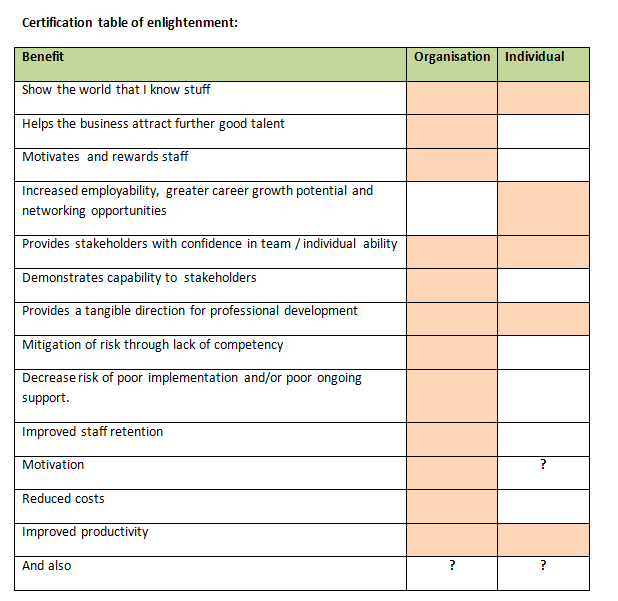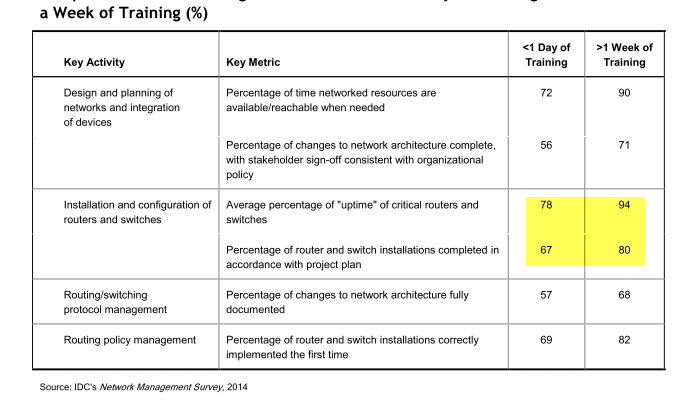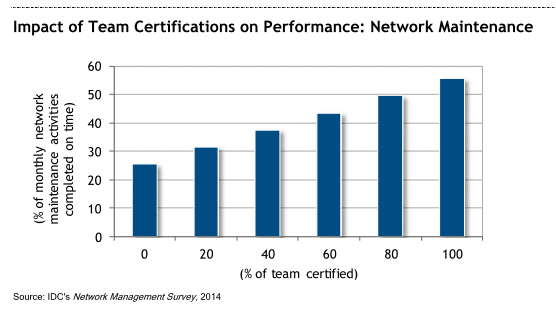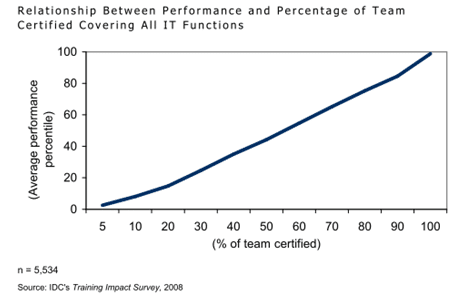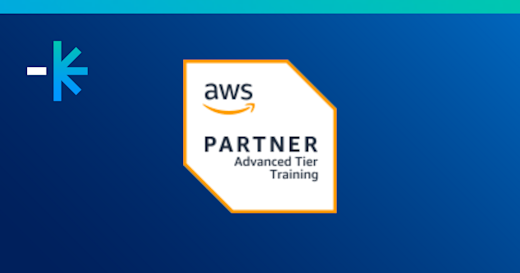Got a question? Call 1800 853 276 | Login
I’m not sure whether to be flattered or insulted but I was recently asked to deliver a speech to the “Young IT” collective from the Australian Computer Society. The sudden realisation that at 48, I was now “Middle Aged IT” I’ll be going to be out of support soon. Luckily, the Young IT event was well attended and generated some great ongoing conversations.
My subject for the evening was, well, me. I know a lot about me, but not as much as I used to. My 1D joke fell flat, they had never heard of Wham, but were fascinated by my PowerPoint emulation of a dial-up modem, complete with “bee in a crisp packet” sound. A whole generation working in IT who think Hays Compatible is a recruitment company metric.
I even got Tweeted by a young person… Makes me feel about 25.
The overarching theme of my session was that I’d had to reinvent myself through many industry “paradigm” shifts. I’ve sold mainframe emulators, installed acoustic couplers and worked on the IT strategies of major businesses. My messaging was that as Young IT professionals, the audience are in a great position as we face the epoch shattering shift to the cloud. I even did an Azure demo.
The elephant in the room question.
After a throw away comment about me being the only OS/2 certified person in Perth the subject of vendor certification came up.
Are vendor certifications of any value in the real world to Gen Y. In an industry that now expects a degree as the entry point?
It was a great question that continued after the event. I felt well equipped to answer, I graduated in 2009 from Manchester Met University, on a 30 year trip to get to that degree, I picked up certifications in French fry production at McDonalds, an MCNE and MCNI by Novell, XT repair and OS/2 from IBM, an ITIL ticket , NT4, Windows 95, PowerPoint 2010… My certification profile ebbed and flowed as the technologies and services I delivered changed. Heck, OS/2 Certs are of no use today, but back in the day, they gave me the confidence I needed to work with one of those newfangled graphical user interfaces. Maybe more importantly, it gave my customers confidence as well. The Young IT’ers had never heard of WIMPS.
So are certifications worth pursing as an individual? My catch all answer is “yes”. But of course it depends on your own motivation. For example, if you are looking for the next step up, a certification might differentiate you from the pack. This sometimes scares business managers. You might leave!
Would you leave university the day before the exam?
Would you leave university without doing the degree because you had learnt what you set out to learn? If you’ve done the course, you know your stuff, you’ve already done the hard part. Go take the exam. In fact, in some cases, if it’s a Microsoft course, DDLS will provide the exam free of charge.
So there really are no excuses to not take the last few steps and take the exam. It will make a difference, especially if the day comes when your qualifications are being lined up against other people who didn’t do the exam.
Personally, I’m passionate about certification – for a number of personal reasons, if I had to list my top 5, I’d go with something like:
A way to demonstrate that I have the skills to get the job done
The personal challenge of me versus the vendor / me versus the technology
Bragging rights
I like certificates
Industry Credibility, actually, let’s make that technology credibility
There are lots of vendor certifications you could take, Microsoft, Cisco, ITIL… You need to understand your own motivation before deciding the way to go. We are happy to help guide you on your certification journey.
My boss says….
Many organisations recognise the bottom line value certification brings to the business, some still hold onto the out dated view that if you get certified you’ll leave. That is possible, but you’d leave anyway if you are not being challenged, or when you work out you are not being invested in. Richard Branson, the man behind the Virgin brand seems to have done alright for himself, he’s the one with an airline and a real train set. I love his quote.
I can’t claim to know what Richards approach is beyond what I hear and read. But as a business man, it’s clear he values training and certification. He also said:
If you look after your staff, they’ll look after your customers. It’s that simple.
Sadly not all bosses are as enlightened, not all bosses own a spaceship either.
Today, Lewis, one of our MCTs is teaching a technical FastStart course, at my request he asked the 8 students about their certification plans. Everyone in the class wanted to do the exam, everyone would be rewarded at the office if they got certified. I chatted to people around the office, staff, students, and the guy that cooks the lunches for us – my question was about the benefits of certification. I created my Certification table of enlightenment. What’s in it for you? For your organisation? What did we miss? Mail me.
Is there any evidence Certs reduced costs?
It’s easy to take anecdotal stories about someone’s certification journey and turn it into pseudo fact. I can tell the world that without my OS/2 certification I’d still be in the cold of the UK and not working for the best training business in the business – but that is subjective and hard to quantify As IT Pro’s we like facts and tangible data. Training ROI is hard to qualify, especially on a certification programme with several training interventions and exams. How do you measure, when do you measure, in fact, what do you measure? Fortunately, IDC release the results of training and certification surveys all the time. Easily to find with Bing (other search engines are available). The most recent survey IDC conducted, of over 3000 people was for Juniper. Their Network management Survey from 2014 provides some reusable, fact based stories. Like how >1 week of training drove an increase in router up time from 78% to 94%. – Now that is tangible.
But that’s training, not certification. OK, let’s borrow another IDC stat. From a certification perspective, IDC found strength in numbers. The higher % of a team that had achieved a certification, the quicker maintenance activities completed on time. That translates in to a bottom line saving – so that must impress the boss.
Whilst these figures relate to Juniper, back in 2008 IDC did a similar survey across all IT functions, the results are very similar.
We have to conclude from this that, actually there is a tangible Return on investment to be had by certifying the team. Making it part of the culture.
It is win:win, but don’t call me Shirley
The business gets measurable benefits, reduced down time, it gets non-measurable benefits in a motivated workforce, the individual, you and I, can show the world that we know stuff. Even if it is OS/2.
There is an analogy I like to use when making the case for certification:
Think back to the last time you flew somewhere. Was the pilot of our Boeing 747 certified to fly us across the country? If we could save a few bucks, would we be happy with someone up front flying where the skills were not validated? I wouldn’t. I’ll take the CBD every time (Certified Boeing Driver).
Rather like modern certifications, pilots have to be certified for each aircraft type they fly, and they have to be revalidated from time to time. As we head for the clouds as well, maybe we need to adopt that same model, after all, certification hasn’t done career changer actor John Travolta or Iron Maidens Bruce Dickenson any harm as they headed for the cloud.
I’ve impressed myself weaving Mr T and Mr D into a cloud and certification metaphor, sadly Young IT will not have heard of Staying Alive or Number of the Beast.
You can find out more about Microsoft Certifications at DDLS here.
You can down evaluation versions of Microsoft software here.
The Iron Maiden back catalogue is available on Amazon.
All the best
Gary Duffield



